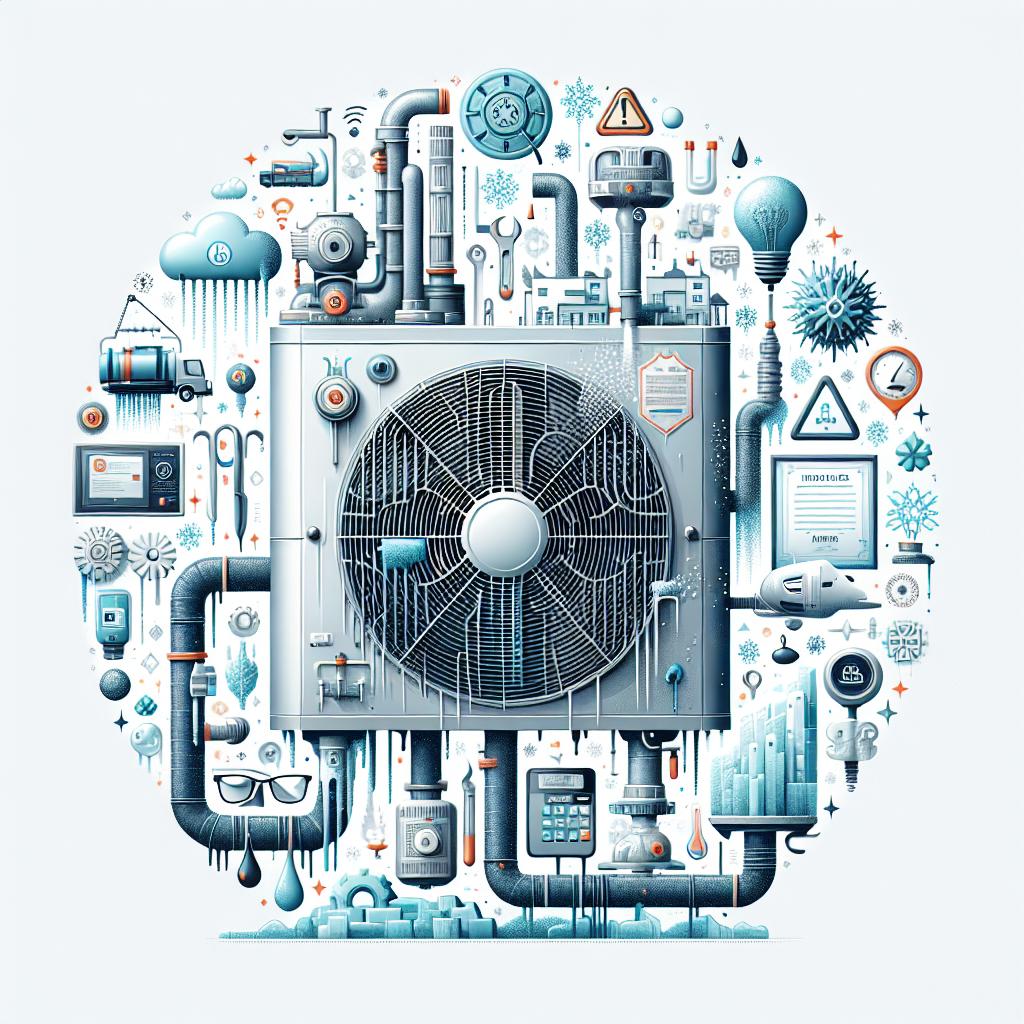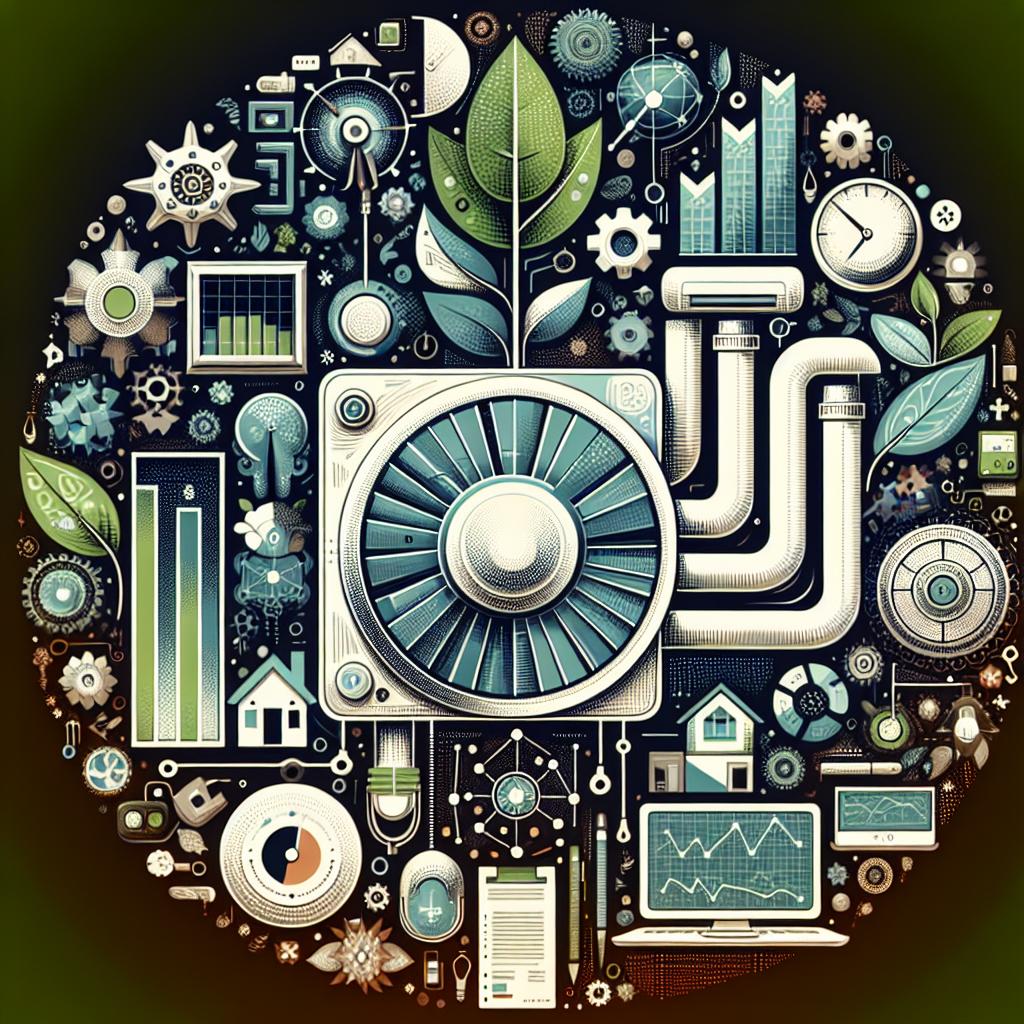When the seasons shift and temperatures fluctuate, homeowners often find solace in their trusty HVAC systems. But what happens when that comfort suddenly comes at a cost? As unexpected repairs arise, many find themselves asking a crucial question: Does homeowners insurance cover HVAC issues? Navigating the intricacies of homeowner’s insurance can often feel like wandering through a maze, especially when it comes to the specifics of protection for essential home systems. In this article, we’ll demystify the relationship between homeowners insurance and HVAC systems, exploring what is typically covered, potential exclusions, and tips on ensuring you’re adequately protected against those unexpected breezes. Whether you’re a seasoned homeowner or a first-time buyer, understanding this aspect of your insurance policy is key to maintaining your home’s value and comfort.
Understanding Homeowners Insurance and HVAC Coverage
Homeowners insurance generally provides a safety net against a variety of unforeseen events, but when it comes to HVAC systems, the specifics can be a bit murky. Typically, if your HVAC system is damaged due to a covered peril—such as a fire, storm, or vandalism—your homeowners insurance may help you cover the costs of repairs or replacement. However, this coverage is not universal, so it’s crucial to check with your insurance provider about the specific terms and conditions of your policy. Understanding these details can save you from unexpected out-of-pocket expenses.
It’s equally important to know that homeowners insurance does not typically cover wear and tear or maintenance issues. For instance, if your HVAC unit fails due to age or poor maintenance, you will likely have to shoulder the repair costs yourself. To help clarify, consider the following points:
- Covered Events: Fire, storm damage, vandalism
- Not Covered: Wear and tear, lack of maintenance
- Additional Policies: Home warranty, separate HVAC coverage

Common HVAC Incidents and Their Insurance Implications
Understanding the nuances of homeowners insurance coverage is crucial, especially when it comes to common HVAC incidents that can arise. Many homeowners may not be aware that standard homeowners insurance policies often provide limited coverage for HVAC systems, which typically fall under the category of household systems and appliances. Here are several incidents that homeowners might encounter:
- Sudden Breakdown: If your HVAC system fails due to age or neglect, it may not be covered. Insurers often require regular maintenance.
- Accidental Damage: If a storm damages your outdoor unit, your policy might cover the repairs under storm damage.
- Fire Damage: If an electrical failure in the HVAC causes a fire, most homeowners policies usually cover such incidents.
It is essential for homeowners to read their policies thoroughly to identify the specifics of HVAC coverage. Additionally, many insurers offer endorsements or riders for comprehensive appliance coverage. Below is a simple table showcasing the typical coverage scenarios:
| Incident Type | Coverage Status |
|---|---|
| System Failure due to Neglect | Generally Not Covered |
| Storm Damage | Usually Covered |
| Fire Caused by HVAC | Usually Covered |
| Wear and Tear | Not Covered |

Navigating Policy Limitations and Exclusions
When it comes to homeowners insurance, understanding the limitations and exclusions in your policy is crucial, especially concerning HVAC systems. Many policies provide coverage for personal property damage; however, certain scenarios may leave your HVAC system vulnerable. Common exclusions to watch for include wear and tear, mechanical failure, and neglect. While your policy might cover damages from sudden accidents or certain natural disasters, it typically won’t reimburse you for issues stemming from a lack of maintenance or age-related breakdowns.
To navigate these potential pitfalls, reviewing your current policy is a necessity. Look for specific clauses that outline the coverage of major appliances, including your HVAC system. It’s also beneficial to consult with your insurance agent to clarify what is and isn’t included. Below is a simple table summarizing key aspects to consider:
| Coverage Type | Description |
|---|---|
| Accidental Damage | Covers damages caused by unexpected events, such as a storm. |
| Mechanical Failure | Typically excluded; refers to issues due to wear and tear. |
| Negligence | Not covered; results from lack of proper maintenance. |

Practical Tips for Maximizing Your HVAC Coverage
Understanding the nuances of your homeowners insurance can empower you to make the most of your HVAC coverage. Start by reviewing your policy to identify specific terms related to heating and cooling systems. It’s essential to check for exclusions, as many standard policies do not cover issues like wear and tear or neglect. Additionally, familiarize yourself with any deductible requirements, as these can significantly affect your out-of-pocket costs in the event of a claim.
Consider regular maintenance as a proactive measure that may enhance your coverage. Regular check-ups by a certified technician can help prevent sudden failures, which often lead to claims. In addition to this, keep thorough records of your HVAC maintenance and repairs, as this documentation can strengthen your case when presenting claims. To further protect your investment, install surge protectors and use smart thermostats that can prevent energy-related damages. Below are some practical measures to keep in mind:
- Document everything: Keep receipts for repairs and maintenance.
- Stay informed: Read up on the latest HVAC insurance policies and terms.
- Communicate with your insurer: Don’t hesitate to ask for clarification on coverage details.
| Maintenance Tips | Benefits |
|---|---|
| Regular filter changes | Improves efficiency |
| Seasonal tune-ups | Prevents costly repairs |
| Safety checks | Enhances system longevity |
Q&A
Q&A: Does Homeowners Insurance Cover HVAC Systems?
Q: What is homeowners insurance?
A: Homeowners insurance is a type of property insurance that provides financial protection to homeowners against certain types of damage or loss to their home and personal belongings. It typically covers losses due to disasters like fire, theft, vandalism, and certain natural disasters, depending on the policy.
Q: Does homeowners insurance cover HVAC systems?
A: The coverage of HVAC systems under homeowners insurance can vary. Generally, standard homeowners insurance policies include coverage for HVAC systems if they are damaged due to a covered peril, such as fire or hail. However, damage due to regular wear and tear or lack of maintenance is usually not covered.
Q: What specific situations might homeowners insurance cover the HVAC unit?
A: If your HVAC system suffers damage from a covered event—like a lightning strike causing an electrical surge or a tree falling on your house that ruptures your HVAC unit—your homeowners insurance may pay for the repairs or replacement. Additionally, if a plumbing issue leads to water damage that affects the HVAC, that may also be covered if the policy includes coverage for water damage.
Q: Are there any exclusions to be aware of?
A: Yes. Most homeowners insurance policies exclude damages caused by neglecting maintenance or aging components. For example, if your HVAC unit breaks down because it hasn’t been serviced in years, it’s likely that repairs won’t be covered. Policies also typically exclude damages caused by floods, earthquakes, or acts of war, unless specific endorsements are purchased.
Q: Should I consider additional coverage for my HVAC system?
A: Depending on the age and condition of your HVAC system, as well as your location and risk factors, you might want to consider a home warranty or an endorsement to your homeowners policy that specifically covers HVAC breakdowns or failures. This can provide extra peace of mind for unexpected issues.
Q: How can I find out what my policy covers?
A: The best way to understand your specific coverage is to review your homeowners insurance policy documents. You can also contact your insurance agent to clarify any questions regarding coverage for your HVAC system and discuss options for additional protection if needed.
Q: Are there steps I can take to ensure the best coverage for my HVAC system?
A: Absolutely! Regular maintenance and servicing of your HVAC system can not only enhance its efficiency but also ensure that you remain compliant with potential insurance requirements. Document any repairs and maintenance performed and keep records, as these can be helpful if you need to file a claim. Additionally, consider reading through your policy annually and discussing coverage options with your insurance agent to ensure you have optimal protection for your home’s systems.
The Conclusion
navigating the intricacies of homeowners insurance and its coverage can feel like a daunting task, especially when it comes to vital systems such as HVAC. As we’ve explored, whether or not your HVAC system is protected under your homeowners insurance largely hinges on the circumstances surrounding its failure. From wear and tear to sudden damages caused by unexpected events, your policy’s specifics play a pivotal role in defining your coverage.
To ensure you have the protection you need, it’s crucial to read your policy closely and engage with your insurance agent for clarity on what is and isn’t included. Regular maintenance and taking preventative measures can also make a significant difference, not just in the longevity of your system, but in your claims process should a problem arise.
Ultimately, a proactive approach can safeguard your home and offer peace of mind, while appropriate insurance coverage serves as a sturdy safety net in times of need. So, stay informed, stay prepared, and keep your home running smoothly—for both your comfort and your financial security.

